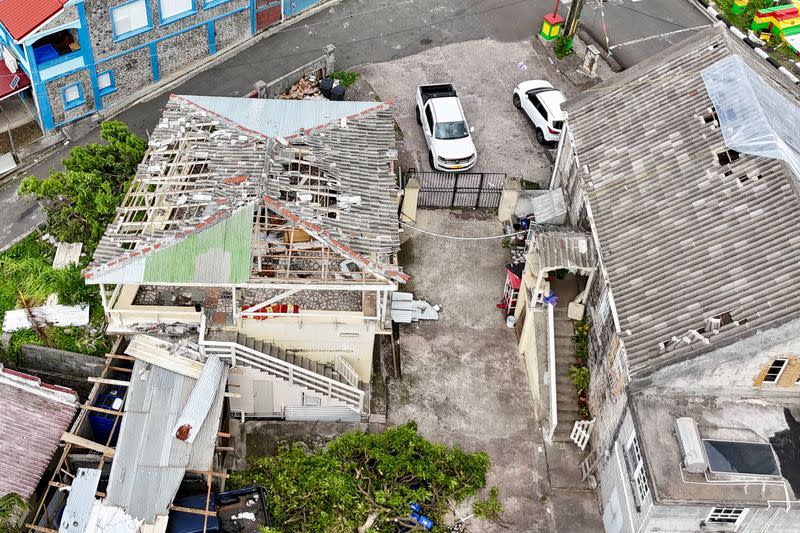Beryl-battered Grenada becomes first to use government bond hurricane clause

By Marc Jones
LONDON (Reuters) -Grenada has become the first country in the world to use a so-called hurricane clause in a government bond - a special feature that allows authorities to postpone debt payments in the wake of a major natural disaster.
The move comes after hurricane Beryl wrought destruction in parts of the Caribbean last month, including in Grenada where Prime Minister Dickon Mitchell estimated it had caused damage equivalent to roughly a third of its annual economic output.
In a notice to the holders of one of its only international bonds, the Grenadian finance ministry said it had "elected to make a Deferral Claim as a result of the Event", adding the "modelled loss" to the economy from Beryl was greater than $30 million.
It means Grenada will not make the bond's next scheduled payments due on Nov. 12 and May 12 next year, which combined add up to just over $12.5 million. Instead the money will be added on to the $112 million bond's subsequent lump sum "principal" payments until the end of its term in 2030.
The move, which will also see Grenada defer roughly another $5 million made up of a bilateral loan from Taiwan and two other smaller loans, is a landmark step.
It is the first time a country has triggered a natural disaster clause and Grenada was the first to include one back in 2015 after a previous hurricane led to two debt restructurings in the space of a decade.
Fellow Caribbean island Barbados followed suit with its own version in 2018 although that, and some alternatives including a "catastrophe bond" in Jamaica, have not been triggered in the wake of Beryl.
"Although no one wishes a hurricane on a country, it is good to see the natural disaster clauses that Grenada inserted into its bonds almost a decade ago doing exactly what they were designed to do," Sebastian Espinosa, a debt expert at White Oak Advisory, who helped develop the clause for the country, said.
These kinds of clauses are expected to become increasingly widely used as climate change leads to more frequent and intense storms like Beryl.
According to International Monetary Fund research, one in ten disasters that hit small countries cause damage equivalent to more than 30% of GDP – contrasted with fewer than one in one hundred for larger countries.
(Reporting by Marc Jones; Editing by Sharon Singleton)
